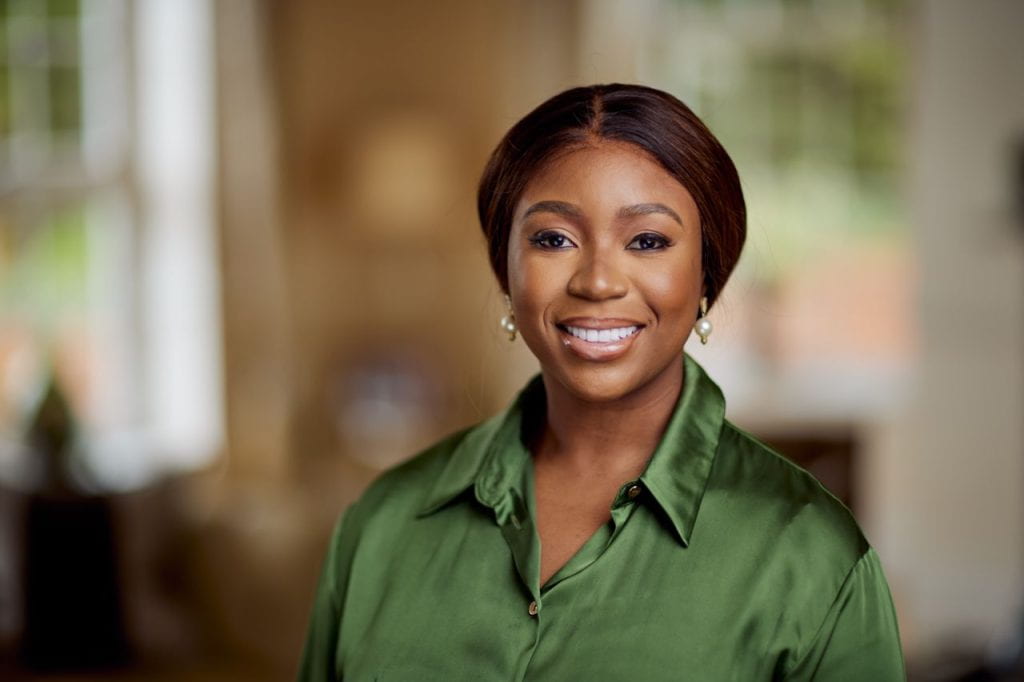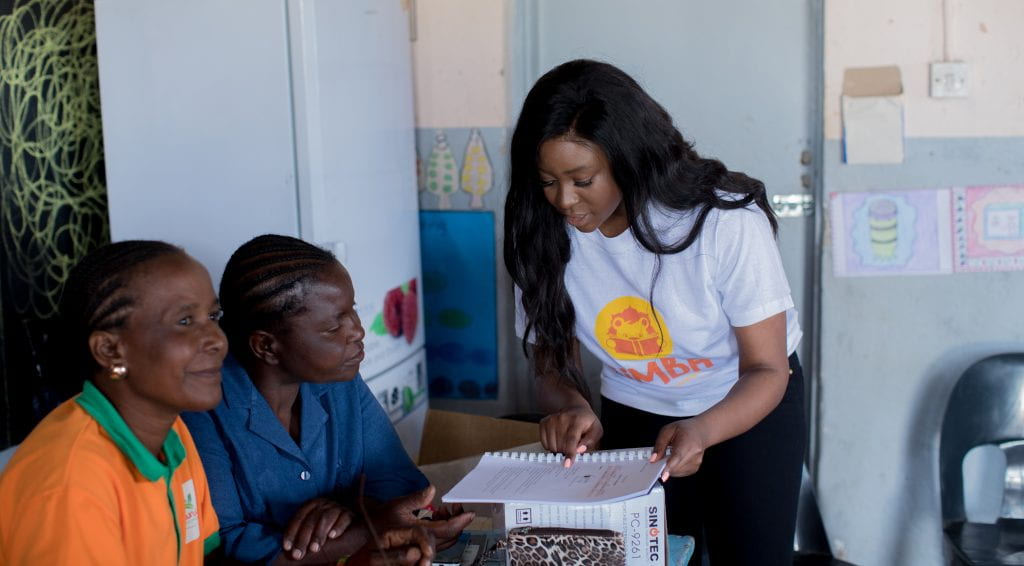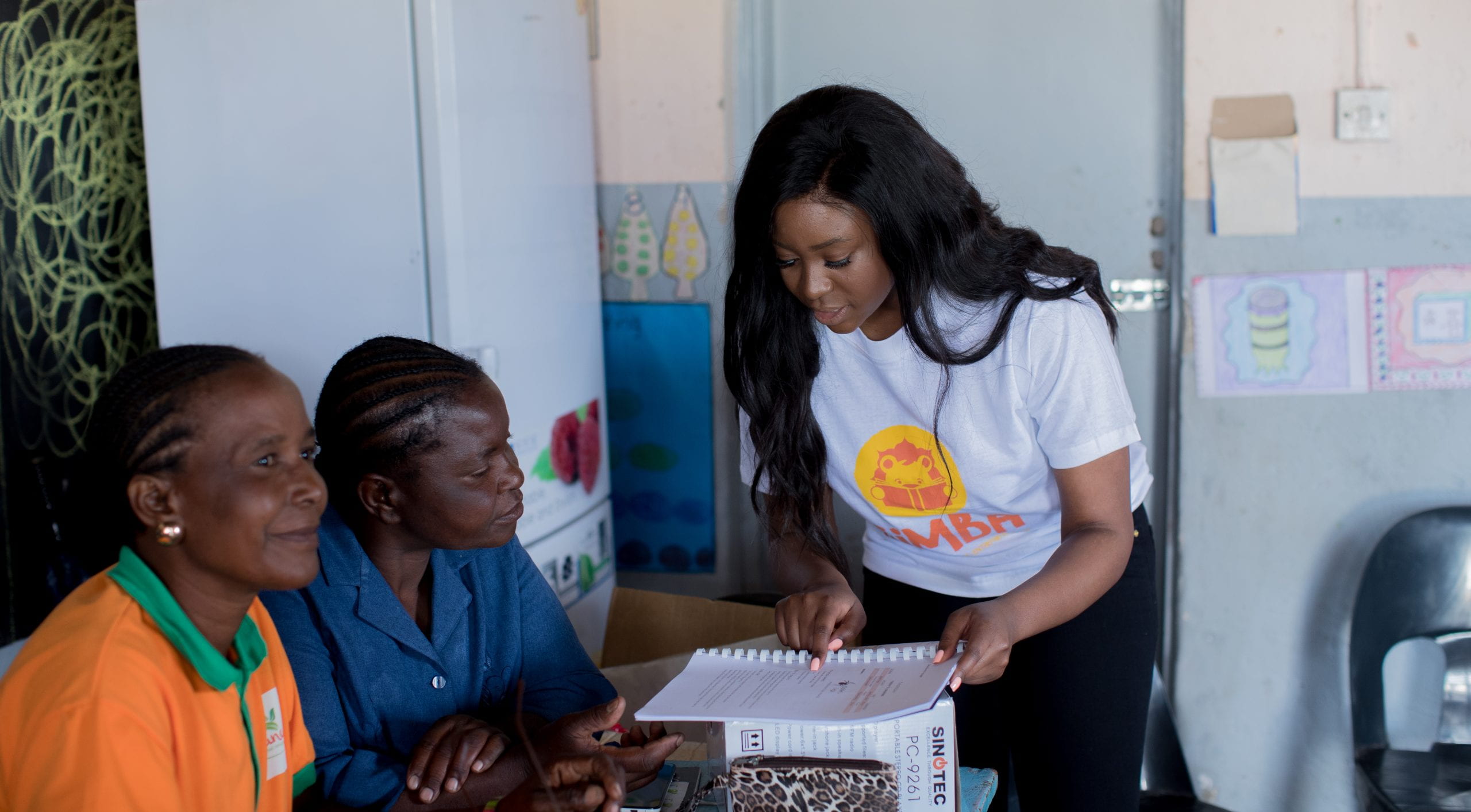At Bayes Business School and City, University of London, we are celebrating Black Futures Month, a reimagining of Black History Month, focused on the future of Black excellence, liberation and collective Black joy! As the theme this year is #SalutingOurSisters, we’re highlighting some of our Black alumnae, who have made a huge difference to their communities and contribute to improving the lives of others.
 In this conversation with Elizabeth Masiyiwa (BSc Hons Banking and International Finance, 2014), a social entrepreneur and smartech executive, we discuss how she’s improving access to education in Africa through technology, her philanthropic roles and her time at Bayes Business School.
In this conversation with Elizabeth Masiyiwa (BSc Hons Banking and International Finance, 2014), a social entrepreneur and smartech executive, we discuss how she’s improving access to education in Africa through technology, her philanthropic roles and her time at Bayes Business School.
Please tell us about your passion for transforming education in Africa and the important work of the two companies you’ve co-founded, Akello and Simba?
Nelson Mandela said, “Education is the most powerful weapon which you can use to change the world”. This is something that I believe because I have seen it through the work that we do. Education has the power to unlock opportunities for children, especially those in developing countries. What we are trying to do at Akello and Simba Education is figure out how we can do education differently. With Akello, it’s about how we can harness technology and its enhanced capabilities, including AI, to scale access and help improve learning conditions for children, especially in an environment where there are limited resources. At Simba, it is all about setting the right foundation for early learners. We are focused on transforming, so you can provide the best education in the worst environment, and that’s what I did. Created a sustainable business model around that.

How vital is technology in expanding access to quality learning opportunities for students across Africa?
Technology is definitely a game-changer in expanding access to quality learning opportunities. The impact it had during the Covid-19 pandemic, for example, was immeasurable, providing the opportunity for students to continue learning while being away from a physical classroom. Akello, our digital learning platform, has provided access to quality learning and curriculum-aligned content that aids in improving learning outcomes for over 1.6 million students in Zimbabwe and Lesotho, since we first started working on the platform in 2015. In addition to access, technology can also be a more cost-effective way of providing access to learning material, such as textbooks or past exam papers, which many students, particularly in Africa, do not have. We’re also able to create the right kind of synergies and improve the reach of these services through the work of Cassava Technologies, making sure that we leave no African behind. There is, however, a lot of work still to be done to improve access to digital devices, so that students can connect online and take advantage of the various solutions in education.
We know you’re also very busy with your various philanthropic roles, including being the President and CEO at Delta Philanthropies and Higherlife Foundation, as well as being a Commissioner for Commonwealth Scholarship. Please could you tell us what this entails and what you enjoy most about it?
I am responsible for the overall operations of our organisations. Our approach is to look at the challenges that people within the communities we are present face, design programmes that address these challenges and mobilise the resources required to implement our interventions. We work across four pillars critical to human capital development, namely education, health, rural transformation and disaster relief, and our goal is to play a catalytic role in helping the countries we work move people and communities out of poverty by the year 2050. What I enjoy about the work we do is seeing people’s lives transformed not only through philanthropy but also through business. Our approach looks at how we can create sustainable livelihoods for people so they do not rely on handouts but become independent and earn a decent living. I’m excited about what we’ve been able to achieve so far, which gives me the belief that we can afford to imagine a world where people do not live in extreme poverty.
You currently sit on several boards too. What do you hope to achieve with these roles?
As a Board Member, you have a fiduciary responsibility towards the company or organisation, and you’re required to give strategic input to ensure the business is positioned to meet its key objectives. I have focused on serving on the boards of corporate companies and organisations that have an impact on Africa, as I seek to use my career as a platform to cause some change on the continent. One of the honours and opportunities of serving on boards is to learn from the peers you’re serving with, and that has helped me create a network of experts and people I admire who have helped propel our work forward at the Foundation. One of the boards I truly cherish is Econet, the company my father started. It is a large reason we are able to help so many communities, and by sitting on the Board, I have an opportunity to steward those resources and continue his legacy.
Business, entrepreneurship and investment, all seem to play a huge role in your career. Is this why you were inspired to study your BSc Hons Banking and International Finance at Bayes Business School?
Interestingly, I had originally applied to study Accounting, but the School recommended I student Banking and International Finance, as they thought I was more suited to that programme. After the first year, I had the option to switch to Accounting, but I figured that Banking was it for me. I don’t think I would be able to do what I do today if I hadn’t studied the degree, especially International Finance, which goes hand in hand with philanthropy. In philanthropy, you have the space to creatively look at how to structure funding resources, and so it helps to understand finance. The best philanthropists understand money, and many of the biggest ones come from the finance sector in some shape or form. Philanthropy is not about giving money away it’s about how you structure finances to create an impact for people.
It would be great to learn more about your time at the Business School? Do you have any standout memories?
The Business school, from day one, prepared me for the working world. Unlike other universities, there weren’t any societies and sororities, your society was the city, and from the first day, it threw us into the deep end. The Business School is set as if you’re going to the office, there are very serious and professional people, but you could talk to anyone, which made it very accommodating. One of the things I appreciated is that because of the School’s reputation, we had the opportunity to spend time at some of the best banks in the world, an invaluable experience that I’ve taken with me throughout my career. The way that the School embraces the culture of London was also great. It helped us learn a global perspective of business rather than a local one. Being at City, University of London makes you a global thinker. One moment I would like to mention was a point when I was struggling with one of my classes and went to see the Dean of the programme. She said to me “if there were no ups and downs in life, it would not be life at all”. It motivated and encouraged me, and since I’ve seen every slump as a life experience and anticipated the ups.
Do you have any advice for others looking to follow in your footsteps?
The first is to be patient. Things are not always going to go according to plan, but have the courage to stick through it, and eventually, you will find a way. The second is to collaborate. The maxim ‘if you want to go far, go together’ is a good reminder that we have to rely on the support of others to achieve our goals. And finally, see every challenge as an opportunity, even if it is just to learn.
Thank you to Elizabeth for sharing her story and the invaluable work she does to improve the lives of other women.
